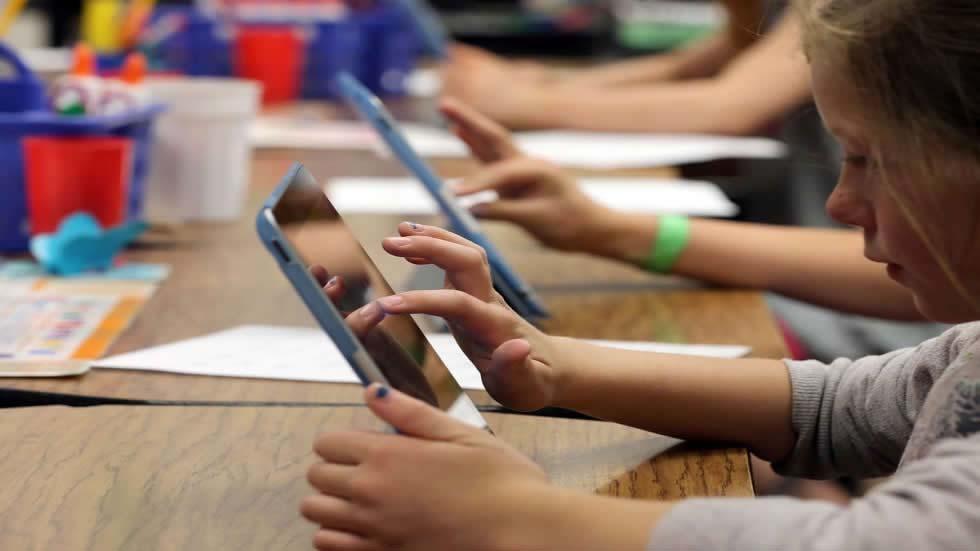Computers, laptops, tablets, smartphones have all, isolated or combined, become a very significant part of our lives. The timeline can be easily divided into pre-computerization and post-computerization eras.
The way the world operated before the advent of computer and the way it does after computer became a commonplace is enormously but not astonishingly different. Add to it the INTERNET revolution and the change becomes immeasurable. We have reached a point in time where for most of the questions asked, the most probable answer is, ‘Why don’t you just Google it!’. It goes a long way in showing how the approach has changed from spending time in libraries with huge books to finding it all online. The paradigm shift from real to virtual has changed the way we live, the way we connect and the way we access information. It is no surprise that it is now changing the way we look at education.
Online education was first started by companies looking to train the new employees. It was considered as an efficient way to train as it reduced the costs considerably for the companies. With accessibility provided by the internet the acceptance for this form of training grew manifold. As internet gained popularity, the bright minds of the world introduced more and advanced usage of internet, which was earlier used only for military intelligence. One of the revolutionary usages is that of online education! Online Computer education is an upcoming trend. It has been warmly accepted by the academic fraternity and the students world over. Easily accessible, low cost, good quality education is no longer a dream.
What better way to study about computer than through it! Using a computer to further one’s knowledge about it is the most appropriate compliment to this revolutionizing technology. It is purpose well served! The variety of computer courses available online at nominal costs makes it a lucrative alternative. Various initiatives are taken by top notch universities around the globe to provide free online Computer courses as a supplement to regular curriculum learning gives the ambitious people their most awaited chance to excel. Not only supplementary classes, establishment of open universities for dissemination of education online has made ‘education for all’ a possibility. You no longer have to be a stereotypical student with a heavy bag, staying in university campus, to learn about computers or any other field of your choice. All you need is internet access and a compatible interface and the zeal to learn and excel.
The increasing competition to get into top colleges has given rise to entrance and eligibility tests. And guess what, students go to classes for getting into colleges but even this is not as easy as it seems. These classes, in a bid to get the best of students, also keep aptitude tests! Whoof! What is a student supposed to do? Aptitude tests to prepare for aptitude test! Sounds crazy doesn’t it! In a world, with ever increasing pressure on students to outperform their peers, it is difficult for them to manage everything in the limited hours of a day. Online courses and study material come handy in such situations. Students now have a choice to prepare from home at a time and pace most suitable to them.
According to a 2009 meta study from the Department of Education: “Students who took all or part of their class online performed better, on average, than those taking the same course through traditional face-to-face instruction.” Students who mix online learning with traditional coursework (i.e. blended learning) do even better. Source: Evidence-Based Practices in Online Learning: A Meta-Analysis and Review of Online Learning Studies, United States Department of Education.
Online Education is a manifestation of globalization and technological advancement. Education would truly become global as the content could be accessed from any part of the world at an affordable price. Expertise that is limited by geography would have a greater reach. We all know how dynamic the world is and how rapidly everything changes. Online education is more adaptable to these changes as the cost of adapting to the new developments in the academic world is comparatively much lower. However, like every coin has two sides so does this. The world is becoming increasingly virtual. This has reduced the physical world interactions and online education would reduce it even further. Imagine a kid not going to school because his school comes alive on his computer. How would he make new friends? Where would he play and make mischief? Real world interactions are just as important in shaping up an individual and cannot be completely ignored. It remains to be seen whether online education sweeps its traditional counterpart off its feet or the traditional form stands the test of time!
